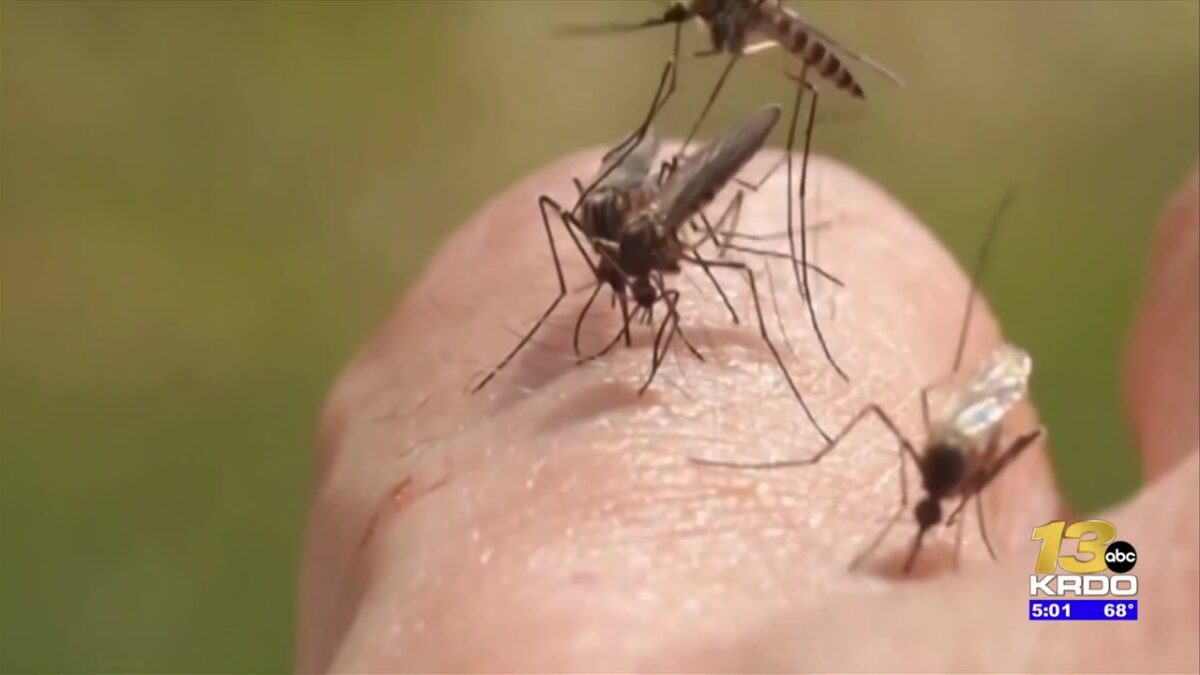How to protect yourself from West Nile virus

Mackenzie Stafford
EL PASO COUNTY, Colo. (KRDO) – On Monday, the Fremont County Department of Public Health and Environment announced that two people have died as a result of the West Nile virus.
MORE DETAILS: Two West Nile virus-related deaths confirmed in Fremont County
KRDO13 spoke with El Paso County Public Health (EPCPH) to learn more about West Nile virus and ways you can protect yourself.
“The virus is actually carried by birds. And when mosquitoes feed on infected birds, they carry the virus. And then when they go to bite people, they transmit the virus to us. So people can’t actually transmit the virus to anyone else. There are rare cases of a mother breastfeeding an infant, but I can’t give the virus to you just by walking by. We have to be bitten by an infected mosquito. And that’s why focusing on prevention and preventing mosquito bites is so important,” explained Haley Zachary, Communicable Disease Division Manager at EPCPH.
Zachary explained to KRDO13 ways you can work to prevent getting the disease.
“There is no medication or cure for the virus. And so, really, it’s treating the symptoms. So the best thing to do is to prevent getting the virus in the first place. And that is going to prevent mosquito bites. And so, really using insect repellent is going to be your number one,” Zachary continued, “But also ensuring that you’ve got good screens on your doors and windows to prevent mosquitoes from getting in your home. Most of the mosquitoes that carry West Nile virus are very active during dawn and dusk, so avoiding being outdoors during those times of the day is going to be important. And then lastly, these mosquitoes really like to breed and live in standing water. And so getting rid of any of that standing water around your property, whether that’s a birdbath or puddles, or stagnant pools, all of that is going to help you to limit the amount of mosquitoes on your property.”
Health officials say it’s important to check places for standing water that you might not expect.
“They breed in kind of natural pools. So that could be a tree stump that could be, you know, your irrigation drain. So really, those tiny, tablespoon-type areas of water are enough for them to breed. So really, emptying out old tires or turning over pots or anything like that is going to help prevent that activity,” shared the Communicable Disease Division Manager at EPCPH.
She recommended using Dunks if you are unable to dump your standing water.
“It’s a safe kind of bacteria that you put in that water that will go ahead and kill the mosquito larvae. But it’s safe for humans and pets,” explained Zachary.
Here are some ways they say you can protect yourself.
Health officials in El Paso County say most people don’t develop symptoms from the virus.
“It’s only about 20% of people that will develop symptoms, and those are going to be flu-like. So you’re going to get a fever, body aches, myalgia and you’re going to be tired. But you’ll get over it and you’ll move on. It’s a very small subset. So about 1% will develop severe illnesses. And most of those people we’re looking at are over the age of 50 or have certain medical conditions that make them more susceptible to severe illness,” said Zachary.
She says it’s important that if you are experiencing symptoms, you should seek medical care.
“If you are experiencing symptoms that are concerning. So, a high fever, a stiff neck, vision issues, things like that. Go to your health care provider, let them know that you’ve been bitten by mosquitoes within the last couple of weeks, and they can kind of help direct your care. And the earlier on in that process that you’re able to seek medical care, often, the better the outcome,” said the Communicable Disease Division Manager at EPCPH.
Lisa Montez is a Colorado West Nile virus survivor who shared her experience with our news partners in Denver from when she was diagnosed in 2022.
“I was here hanging out with the family, and we decided to go out in the backyard in the evening,” said Montez.
Montez said she was outside for 15 minutes when she got bitten. Out of her group, she said she was the only one who contracted the virus. Montez said her symptoms were mild to start, but her fever and fatigue quickly turned into severe migraines, dizziness and a partial loss of hearing.
“I could not drive. It was really hard for me to just walk around the house. I could not walk up and down stairs by myself,” explained Montez.
Now, Montez urges others to go to their primary care provider if they were also bitten and are concerned they may have the virus.
West Nile virus data from the Colorado Department of Public Health and Environment (CDPHE) shows that 41 people have been affected by the virus in the state in 2025 as of August 19.
3 of those people have died, according to state data.
You can find the full data report here.